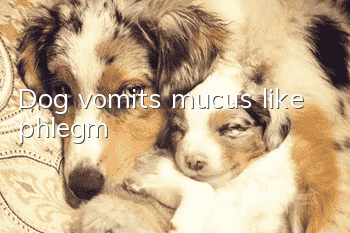What’s wrong with red gums in dogs? What medicine should I take?

Causes of red gums in dogs:
1. Oral hygiene
After dogs eat, food will remain in the teeth and become bacteria. A breeding ground for teeth and mouth. After a large number of bacteria grow, soft plaque will form on the surface of the teeth or inside the mouth. It first exists in the form of dental plaque in the mouth, and then forms stones over time. The occurrence of dental calculus can induce gingivitis.
2. Malformed teeth
If the canine teeth are deformed, the incidence of gingivitis will be greatly increased, so owners of such dogs should pay more attention to the oral hygiene of their dogs.
3. Other factors
Endocrine diseases, lack of vitamin C, malnutrition and other systemic diseases can also cause gingivitis in pet dogs. Endocrine disorders predominate. The main symptom is gingivitis, which is redness, swelling, pain, and bleeding along the gum line. During the inflammation process, the supporting tissue between the gums and teeth will slowly be destroyed, and abscesses will form on the gum surface. If the invasion continues, it will develop into periodontitis.
4. Bleeding gums
Bleeding gums are usually the main symptom of dogs suffering from gingivitis. It usually occurs when biting something hard, but it can also occur spontaneously as a result of gum bleeding. The normal color of gums is pink, but when suffering from gingivitis, the wandering gums and gum papillae appear deep red or dark red, which is caused by congestion and proliferation of blood vessels in the gum connective tissue.
Medicines that can be used for red gums in dogs:
1. Red gums can be treated by feeding antibiotics containing amoxicillin and other ingredients according to the dog’s weight. Antibacterial anti-inflammatory.
2. It can be combined with an appropriate amount of pet-specific vitamin B to improve the dog’s resistance. During this period, special attention needs to be paid to dietary issues, the diet structure should be adjusted, the food should be kept light, the dog food should be slightly soaked in warm water and then fed to make it easier for the dog to chew, and provide the dog with sufficient drinking water. In addition, oral residues need to be cleaned regularly and the oral cavity should be rinsed with diluted salt water or pet-specific mouthwash.
3. When it is extremely serious, it is recommended to go to a professional pet hospital for injection treatment.
- golden retriever genetic disease
- How to train the ferocity of a Rottweiler? How to train a Rottweiler!
- Prevention and care of dog diseases
- The fastest way to treat eczema in dogs
- Symptoms of dog poisoning
- What are the consequences of dogs drinking beer?
- How to train a Pomeranian to shake hands? Pomeranian life training guide!
- Dogs always like to be close to people. What should I do if they are too clingy to their owners?
- Causes of ovarian cysts in dogs | Diagnosis | Prevention and treatment methods
- Signs of fatal disease in dogs



